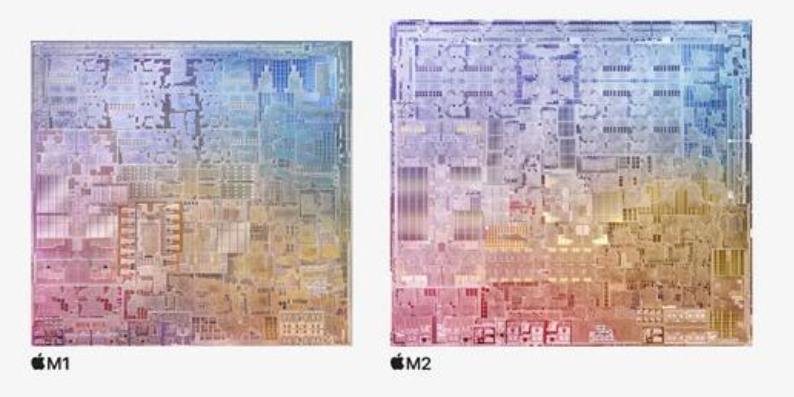
In the early morning of June 7th, Beijing time, Apple held the WWDC Worldwide Developers Conference. This time, Apple released four major systems, namely iOS 16, watch OS 9, iPad OS 16, and Mac OS Ventura. However, compared with software innovation, the release of Apple's self-developed chip M2 can attract more market attention.

As the successor of the first self-developed chip M1 in 2020, Apple has made a lot of improvements on the M2 chip to shoulder the heavy task of launching the M2 series of chips. Although news about the M2 specifications had already been circulated before the release, the actual product was still slightly different from past rumors. For example, it did not use the 4nm process. Apple then gave a more detailed introduction to the M2 chip.
Apple says the M2's focus is on improving the power-to-power ratio, maximizing performance while limiting the amount of power needed.
The M2 uses TSMC's "second-generation" 5nm process, which is guessed to be N5P (5nm performance-enhanced version). Referring to TSMC's introduction to the N5P process, under the same power, N5P will have a 7% performance improvement and a 15% power consumption improvement. It is reported that the M2 performance is 18% higher than the M1 and 1.9 times the performance of the latest 10-core PC laptop chips. At the same power level, the M2 will have 25% more GPU performance than the M1 and 35% more at maximum power. %.

From the perspective view of the M2 and M1 chips released by Apple, it can be seen that the M2 chip has a larger area, and the number of transistors has exceeded 20 billion (M1 is 16 billion).
Compared to N5, N5P mainly improves performance characteristics and does not increase density. While Apple doesn't provide the size of the chip, the schematic shows that the M2 is slightly larger than the M1. The performance core of the M2 chip has a larger shared L2 cache, which is increased from 12MB of the M1 chip to 16MB. The M2 chip is also equipped with a new version of the video codec module, which adds support for ProRes and ProRes RAW codecs, and officially supports 8K video decoding.
Apple claims the M2 chip is 1.9 times faster than an Intel Core i7-1255U processor with 16GB of RAM at the same power. If you change the conditions to the same peak performance, the M2 chip consumes a quarter of the power of the Core i7-1255U processor. If the comparison object is replaced by the Core i7-1260P processor, the Apple M2 chip provides 87% of the peak performance at a quarter of the power consumption of the other party.
Johny Srouji, Apple's senior vice president of hardware technology, said that the M2 opened the second generation of M-series chips, surpassed the M1, and continued to promote the pace of innovation in Apple's self-developed chips.